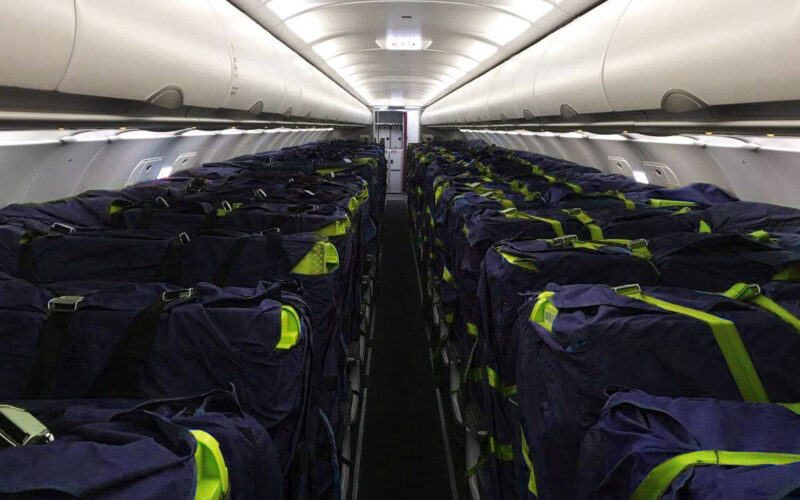The ongoing coronavirus pandemic and subsequent crisis have accelerated passenger aircraft groundings at an unprecedented pace. However, some airlines, like Etihad Airways, striving to sustain at least some part of their operations, turned to repatriation or cargo flights – using passenger planes in both cases.
In the light of this change, the European Aviation Safety Agency (EASA) has recently certified a new option for airlines to modify the interior of their Airbus A320 family jets for goods transportation.
The EASA-certified Cargo Seat Bags, launched by Colibri Aero and J&C Aero, allow for commercial and humanitarian cargo transportation inside A319, A320, A321 passenger cabins. The solution is currently available only for Airbus A320 jets, but a version for Boeing is coming too, according to the companies.
The Cargo Seat Bag allows for transporting up to 252 kg (555 lb) cargo per a triple seat block, including postal correspondence, household goods, electronics, medical equipment, and other. The kits are developed in compliance with Structural Integrity, Fire Protection, and Emergency Evacuation requirements, according to the company’s statement.
Aircraft operators are provided with a cargo bag special condition compliance justification matrix, a loading manual and additional documentation required by their national aviation authorities (CAA). The MOD kit documentation may also be supplemented with an EASA Form 1.
“[…] While the passenger traffic has drastically fallen, many airlines keep operating their passenger aircraft for cargo deliveries – both ordinary goods and medical equipment like masks, respirators, and other items. Being able to promptly apply temporary modifications for passenger cabins for cargo purposes may allow aircraft operators to increase cargo capacities thus adapting operations to the growing demand for cargo air deliveries between countries and regions,” said Andrius Norkevičius, the CEO of Colibri Aero

